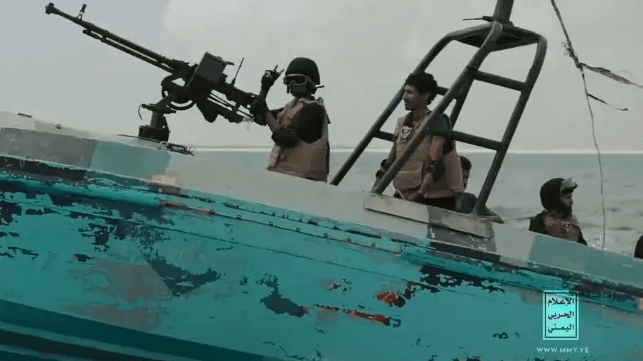China and Russia Get a Free Pass Through Houthis' Red Sea Blockade

The elevated security risk in the Red Sea has been bad news for almost every shipowner, but some parties may end up benefiting - or at minimum, may be able to continue their business as usual.
American and Israeli shipping interests are at risk of attack, but Houthi leaders have explicitly said that Russian and Chinese vessels will be guaranteed safe passage. “Our goal is to raise the economic costs for [Israel],” Houthi spokesman Muhammad al-Buheiti told Izvestia last week. “As for all other countries, including Russia and China, their shipping in the region is not threatened."
Chinese shipping interests appear to be aware of this exception. Many China-linked ships have been broadcasting "All Chinese" or "Chinese Ship" as their AIS "destination" during transits through the Red Sea. Likewise, some ships with Russian cargoes have been broadcasting some variant of "Vessel No Contact Israel."
The proportion of Chinese shipping in Red Sea container traffic has been rising dramatically, according to Lloyd's List, though total container traffic has plummeted). One brand new Chinese carrier even appears to specialize in Red Sea transits. Recently-launched Sea Legend Shipping operates a fleet of seven Panamax boxships that run between China and Turkey, calling at ports in the Gulf of Aden and the Red Sea on the way out and back. It even calls periodically in Yemen (Aden) and serves the Houthi-controlled port of Hodeidah through a transshipment connection. (Lloyd's List first identified Sea Legend's niche service.)
Sea Legend has benefited from naval escort protection from China's PLA Navy, the company says - a relatively rare advantage. The PLA Navy has been conspicuously absent from the allied policing operation off Yemen, though it has warships in the area and a large base in nearby Djibouti. Sea Legend's site highlights that in "the style of a great country, flying the five-star red flag, the Chinese navy escorts" its vessels. It also lists the scheduled transit times for PLA-protected convoys.

that matters most
Get the latest maritime news delivered to your inbox daily.
The Red Sea-Suez route is by far the fastest option for ocean freight between the Far East and the Mediterranean. The alternative is a trip around the southern tip of Africa, which adds about 10 days onto a typical container ship voyage, raising cost and imposing delays on customers. Vessels that can continue to use the Suez Canal may have a competitive advantage relative to their peers.
The comparative safety for Russian and Chinese vessels may have political roots. Russia's government has railed against the UK-U.S. security operation in the Red Sea and against the Israeli operation in Gaza; both of these positions align with the Houthis' demands. The Russian Foreign Ministry has called the anti-Houthi naval mission "a violation of Article 2 of the UN Charter" and a risk to regional stability.
For its part, China has called for a ceasefire in Gaza and an Israeli-Palestinian peace conference, aligning with Houthi demands. It also has a close relationship with the Houthis' Iranian sponsors, according to the White House. “China has influence over Tehran, and they have the ability to have conversations with Iranian leaders [about the Houthis] that we can’t," National Security Council spokesman John Kirby told Politico on Tuesday.
